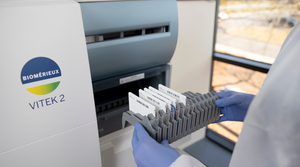In a World of Faster, Higher Profit Margins, Do Ethics Programs Pay?
May 1, 1998
Medical Device & Diagnostic Industry Magazine
MDDI Article Index
An MD&DI May 1998 Column
A mature ethics and compliance program is your insurance in case one of your employees sparks trouble.
Have you ever called in sick to your employer and then spent the day flyfishing? taken home a company pen? backdated records so your files would appear to be in compliance with regulations?
Most of us know the difference between wrong and right, but some situations aren't quite so clear-cut. For example, if an engineer is visiting a client who offers to let him inspect the design of a competitor's device, should he?
Fortunately, in many companies, quandaries about questionable situations now can be taken to ethics officers. Ethics programs came into vogue in the 1980s in response to well-publicized procurement fraud in the defense industry (remember those $500 hammers?). To ensure crime wouldn't pay, 1991 federal sentencing guidelines for organizations put in place measures to punish those companies whose employees are engaged in wrongdoing. Dishonesty can be expensive: up to $290 million in fines and imprisonment for the wrongdoer and company executives who should have been able to stop the action. On the other hand, fines can be reduced by up to 60% if the company instituted an effective ethics program prior to the offense.
"But there's a huge difference between having a written code of ethics and running a mature ethics and compliance program," Michael Hoffman, executive director of Bentley College's Center for Business Ethics (Waltham, MA), told me recently. "The 1991 guidelines expect that a company will have a serious, well-thought-out ethics and compliance program. Window dressing won't cut it. Too many other companies have programs in place that can be used as a benchmark for your own. Programs should have three things: a written code of conduct, an ethics officer who has authority, and an employee training program."
Today nearly one-third of U.S. businesses operate ethics and compliance programs that meet these stipulations, including medical device manufacturers Guidant, Becton Dickinson, and Medtronic. In this month's MD&DI (page 74), we speak with Medtronic's Bruce Johnson about the company's program and its key components, outlined "acceptable business practices," and employee training efforts.
Because there are so many areas a solid ethics program must cover (including acts of dishonesty, sexual harassment, discrimination, environmental policies, and more), businesses may want to seek guidance in developing an effective program from the Ethics Officer Association in Belmont, MA. "The biggest growth in developing ethics and compliance programs is in the health-care sector," says Amanda Mujica, director of communications for the organization. "But programs are increasingly values-based rather than simply adhering to the letter of the law. Ethics officers teach employees not only what's legal, but what's right."
Although creating and implementing an ethics program can be costly—from about $250,000 to over $1 million depending on the number of employees who will be trained—can your business really afford not to have a program in place? "Maintaining a strong ethics and compliance program is essential in today's business environment—it gives you an extra competitive edge," Hoffman asserts. "Compare running a business to owning a house. You wouldn't (or at least shouldn't) own a house without having fire insurance. A mature ethics and compliance program is your insurance in case one of your employees should spark trouble."
Stacey L. Bell
Copyright ©1998 Medical Device & Diagnostic Industry
About the Author(s)
You May Also Like

